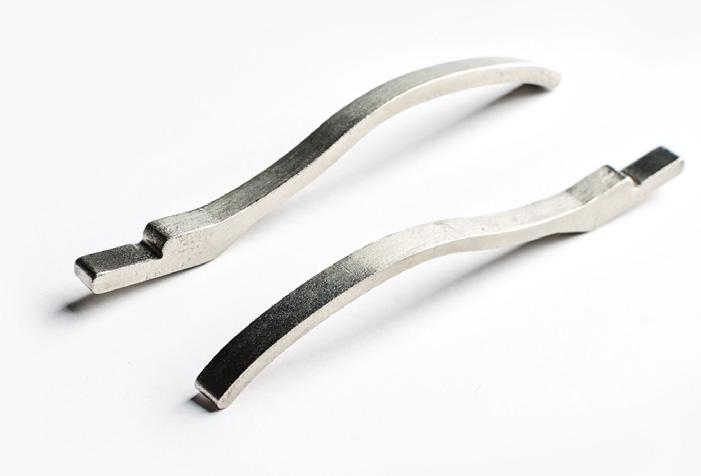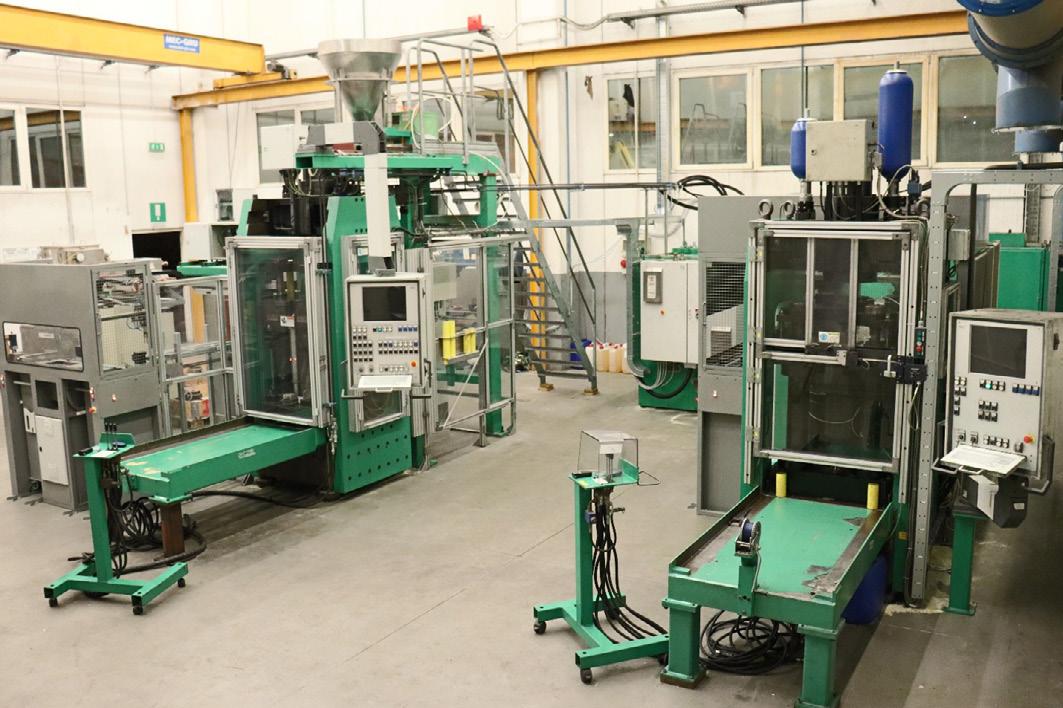5 minute read
Transitioning from Pilot Plant Stage, Metalvalue Ramps Up Additive Manufacturing Technology
Next Article
By Michael C. Gabriele
Metalvalue Ltd., a research and development company with an operational base in Paris, and a network of cooperating companies in continental Europe, is ramping up an innovative additive manufacturing technology that involves spherical gas atomized powder to produce parts with full density in the range from 100g to 5 kg at competitive costs (several parts per minute). The process is suitable for titanium powder metal alloys.
Alain Honnart, partner and managing director, Metalvalue Ltd., said this new-generation technology is an improvement from the MMSScanpac process, which he described, as a speaker, at recent TITANIUM USA conferences. “Our project is based on the development of several technologies to consolidate powder with the ability to use relatively large particle size and nevertheless reaching close to 100-percent density” he said. “We are now in between the pilot plant stage and the industrial stage and have chosen a few priority directions where we believe that the volume will be huge. Our driver is cost reduction and our goal is to be cheaper than conventional metallurgy. Customers will discover that, in addition, the products are better than conventionally made products.”
Metalvalue has pioneered this additive manufacturing with the industrial help from M.A.T. (Metal Additive Technologies) and its licensees. According to Honnart, the technology involves a combination of two factors: an agglomeration process involving a light binder (1 to 2 percent) that’s easy to remove before sintering; and “adiabatic compaction” (a high-velocity/highimpact forming process), which allows parts to reach almost full density. Together, the two factors create a process that can utilize clean spherical powder. Honnart said the process competes favorably with conventional metallurgy because of the yield (50 percent less scrap) but also due to energy savings. Due to the reduction of the number of operations and of the loss of material the energy savings can be up to 10kWh/kg of finished product. Applications for the technology range from the automotive industry to medical applications.
In addition, Metalvalue has developed a complementary patented process, which involves a special preparation of the spherical powder in order to produce a mix without any binders. This is particularly important for titanium because binders usually contain carbon which combines with titanium.

Images of parts
https://www.metalvalue-ltd.com/

View from the Factory Floor
https://www.metalvalue-ltd.com/
In order to configure this process for larger part production, Metalvalue developed also solutions based on extrusion (past experience of 80,000 tons of gas atomized powder transformed into extruded products) and modified hot isostatic pressing, Honnart said. “The know how is based on the optimized use of grain size distributions for the powder, which is sieved after production and each fraction is used alone or combined for each process. This minimizes the cost of powder and allows 100-percent use of the production.”
The patented Metalvalue processes are being developed in Europe, with plans to introduce the technology to North America (Metalvalue Ltd is presently looking for partners for that purpose). Thus far, developments in this process have focused on titanium Grade 5 powder and resulted in very good elongation and tensile strength (better than standards).
“Now that this has been achieved, developments are starting to extrude that specially prepared powder in order to make long products,” he said. “The big advantage is that long products often require special titanium alloys which are produced only in small quantities: with powder there is not the need of big melting batches. Therefore the process is well adapted and should allow titanium to develop quickly for the car industry. Large parts will be made by hot isostatic pressing, even if today no big volume application has been detected.”
Explaining how Metalvalue plans to market the technology and find aniche in the global titanium market, Honnart said the supply chain for producing titanium parts is extremely long and complex. “Rutile andilmenite are abundant all over the world, especially in Asian coastalareas. However, separating titanium from oxygen requires a lot of energy and is a complex process. Since the global production of titanium does not justify specific investments, rolling takes place through campaigns in conventional steel plants, starting from large ingots, slabs or blooms. This requires big minimum quantities and multiple steps and multi-location transformations. Then the slabs or bars are machined with extremely low yield. This propels the price of titanium to levels, which slow down its development. The situation is even worse for long products, for which there would be a market for automotive industry (weight advantage), but the quantities needed today are insufficient for the titanium alloys qualified for those applications.”
Considering all these challenges, he said that powder metallurgy and additive manufacturing can help to improve yield and recycling of titanium, with a correlative savings in the energy consumption (up to 40 percent). “However powder development is slowed down by the availability of powder; present atomizing facilities are small and costly.” Despite the present high price of titanium powder some applications are already competitive with the Metalvalue processes.
Metalvalue (website: www.metalvalue-ltd.com) develops solutions for powder metal manufacturers, extruders and forging companies in non-ferrous alloys, especially titanium, bi-metal products and “cermets” (heat-resistant materials made of ceramic and sintered metal). According to information posted on its website, the company directs research and development projects and serves as a consultant in the field of metal powder.
A 1967 graduate of Ecole Centrale Paris and Master of Science from Harvard University, Honnart, enjoyed a 22-year career as an executive with Vallourec (metallic tubing), serving as a member of the executive committee. He directed industrial policy for the group and served as chief executive officer of stainless steel and titanium divisions. Among his memberships and honors, he was elected as a fellow of ASM (American Society for Materials) in 1999, and garnered the European award from ASM in 1989 for his achievements in powder metallurgy in 1989. In 2005 Honnart was elected as a lifetime member of the Royal Academy of Engineering Science (Sweden) and garnered the Félix award for innovation in 2016.

